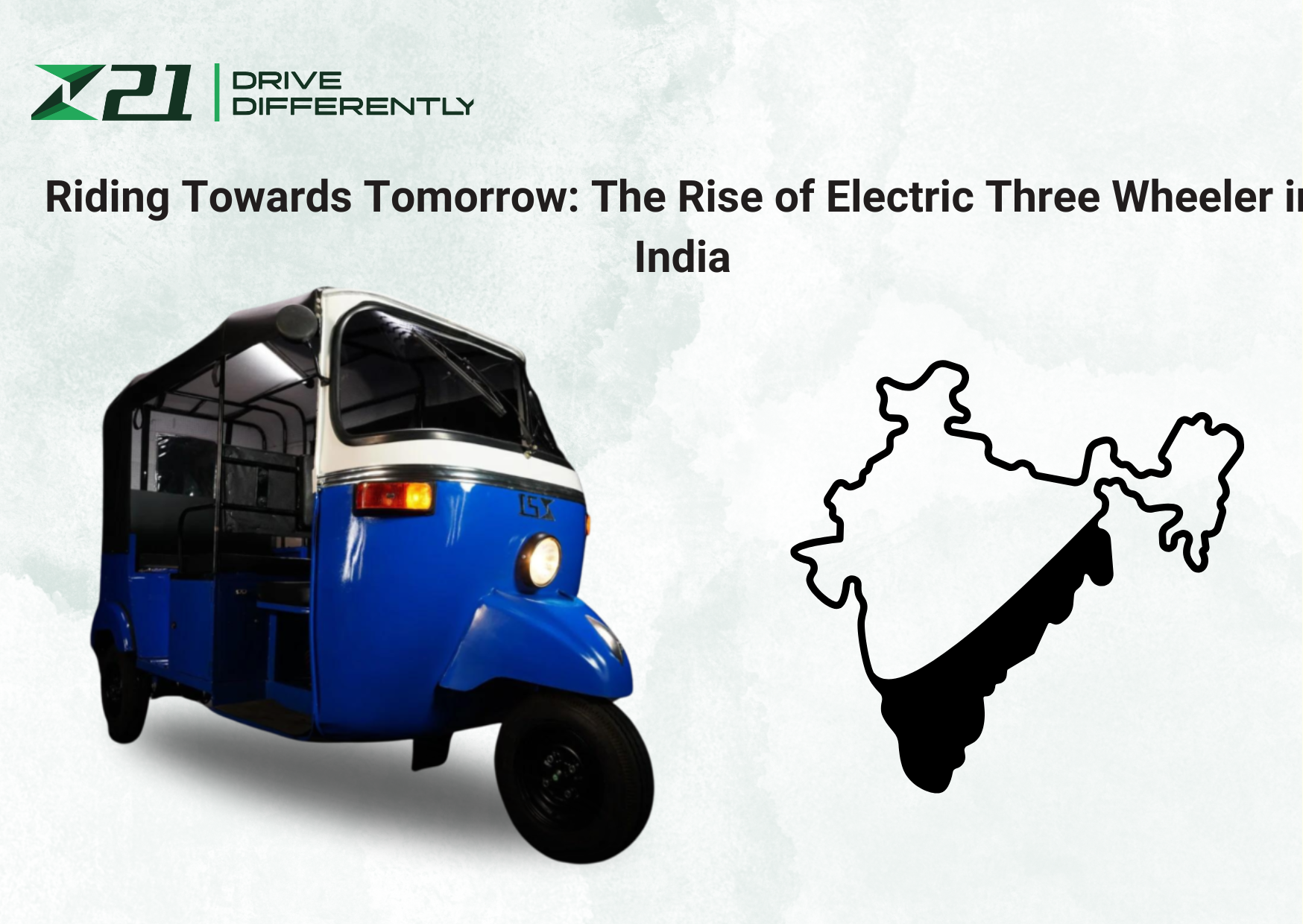India is standing at the precipice of a mobility revolution with the use of electric vehicles (EVs) slowly beginning to grow across the country. Of them, electric three-wheelers are the most significant and are currently revolutionizing urban transport. This shift marks a pivotal moment in the growth of electric three-wheelers in India, raising consciousness of the environmental impacts, and new technologies. In this blog post, we explore the dynamics that are driving this growth, the implications for the economy and the future of electric three-wheelers in India.
The newly found popularity of electric three-wheelers
Electric three-wheelers are quickly gaining popularity as first and last-mile transport and as delivery vehicles within city limits. The growth of electric three-wheelers in India can be attributed to several key factors:
- Government Support:The desire to increase the use of EVs is pursued through incentive schemes, such as FAME (Faster Adoption and Manufacturing of Hybrid and Electric Vehicles).Governments have been offering subsidies and reducing the GST rates on electric vehicles which has led to reduced costs.
- Cost Efficiency:These electric three-wheelers, hence, have much lower operational expenses than diesel or petrol run three-wheelers.As fuel prices continue to increase, Electric vehicles are a cost effective solution for the commercial market.
- Environmental Benefits:Electric three-wheelers that are zero-emission help in reducing air pollution and fighting urban pollution.These vehicles are environmentally friendly vehicles as per India’s agenda of lowering its carbon footprints.
- Technological Advancements:New advancements in battery technology have made the vehicles have better mileage and efficiency.The growth of charging infrastructure is helping to shorten the time operators have to spend out of operation.
Economic Effect of Electric Three Wheeler
The rise of electric three-wheelers is not just a win for sustainability but also a boost for India’s economy:
Job Creation:
Electric three-wheeler production, assembling, and maintenance create employment opportunities.
The creation of charging stations and battery recycling units also helps to create employment.
Support for Small Businesses:
Cheaper and effective, electric three-wheelers provide opportunities for small business owners and logistics companies.
These vehicles are popular amongst small business owners since they allow the latter to save money and make a profit.
Boost to Local Manufacturing:
Electric three-wheeler manufacturing and production of their components promote the Make in India policy.
Local manufacturing therefore cuts on importation hence improving the supply chain.
Challenges to Overcome
Despite the promising growth of electric three-wheelers in India, there are hurdles to address:
Infrastructure Gaps:
The last still prevalent challenge is the lack of charging stations.
This is the effect of the imbalance in the provision of infrastructure to the rural and semi urban regions.
High Initial Costs:
However, since the running costs are not very high, the initial cost of electric three-wheelers discourages many consumers.
Battery Recycling and Disposal:
The problem with the modern recycling methods of EV vehicle batteries is that there aren’t any, which is rather risky for the environment.
Awareness and Training:
The drivers and operators are relatively unfamiliar with electric vehicle technology and the related advantages.
Strategies for Solutions for a Faster Rate of Growth
To sustain and amplify the growth of electric three-wheelers in India, coordinated efforts are required:
Expanding Charging Infrastructure:
Investment by both public and private entities in charging infrastructure will also be available across the country.
Financial Incentives:
Some of these factors include; enhanced subsidies for the electric three-wheelers, lower loan interest rates for the three-wheelers and leasing agreements.
Research and Development:
It also reveals that range and recycling problems can be solved by new developments in battery technology such as solid state batteries.
Awareness Campaigns:
There is a need to engage consumers and operators on the long-term gains of using electric three-wheelers.
The Future of Electric Three Wheeler in India
The market for electric three-wheelers in the future is expected to grow at a rapid pace in India only and this can be forecasted from the following figures. When challenges are addressed by business organizations, policy makers and consumers alike, the desired transformation of the Indian transport sector will come to fruition. The growth of electric three-wheelers in India is transforming the way we think about transportation and urban mobility to point to a new chapter of a smarter, sustainable, and more sustainable economy.
Why Three Wheeler Battery Electric Vehicle?
Sustainability:
In this case, electric three-wheelers are a way in which businesses and individuals can help reduce the negative impact on their environment.
Affordability:
They are also cheaper on the longer run in terms of running and maintenance costs.
Versatility:
These vehicles are designed to be used for transportation of passengers and as lowly means transporting cargo and goods.
Therefore, the growth of electric three-wheelers in India is transforming the way we think about transportation and urban mobility. More and more people are using these vehicles and the result is not only sustainable but also economically feasible. If you are willing to join this revolution, consider Zero21 autos which is a company that has proved to be at the forefront of offering electric autos in the market.


